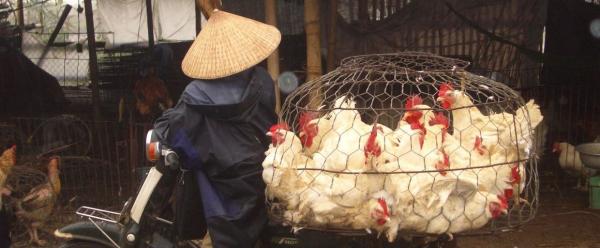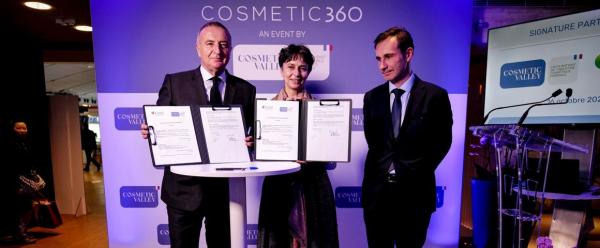Institutional news 21 January 2026
- Home
- Press area
- Press releases
- The initiative TSARA moves into action
The Franco-African research initiative TSARA moves into action

First General Assembly of the TSARA Initiative in Cape Town, South Africa © National Research Foundation
The TSARA initiative aims to stimulate a portfolio of original research, training and innovation projects, jointly developed by African and French institutions and that is both of high quality and geared towards impact and training for rural and urban actors, as well as support for public policies.
Since March 2022, 8 thematic groups have been working through webinars, each gathering up to 60 participants from the 19 members and with potential new partners, in order to draw up an inventory of scientific knowledge and to list the priorities to be addressed in the following areas: soil, water and forests under climate change; the agroecological transition of agriculture and livestock farming; food system sustainability; human, animal and landscape health; work and employment.
The work of these eight thematic groups was presented at the General Assembly, providing the basis for TSARA's scientific agenda and its 2023-2025 action plan, to be implemented in the first half of 2023, and backed by a portfolio of research, training and support projects involving all stakeholders from all or part of the African territories. The results of this work are expected to help address major challenges in order to contribute to the sustainable development goals of the 2030 Agenda at global level, in Europe and in Africa.
This first General Assembly was also an opportunity to provide the TSARA initiative with a governance framework: an operational secretariat made up of 12 institutions, 10 African and 2 French, representing a great geographical diversity. The presidency will be ensured on the basis of a pair of co-presiding institutes. In 2023, CIRAD and ARC will take over the co-presidency for one year, followed by INRAE and IRSA at the next General Assembly, towards the end of 2023. It was also decided that an associate member status would be created to allow French or African research and/or higher education organisations to join TSARA.
Courtesy to the contract of objectives and means signed with the French state in February 2022, INRAE has already devoting new resources to projects that will feed the initiative, including more than 400 k€ for incoming and outgoing mobility of scientists, start-up projects or projects promoting inter-knowledge in 2022 and 2023 in order to develop large-scale projects with all interested partners. All of INRAE's scientific divisions are mobilised. More than a dozen mobilities have been agreed upon or planned and as many start-up and inter-knowledge projects, backed by or in addition to existing structured partnerships.
For its part, CIRAD has been conducting research projects in partnership with African research institutions for more than 50 years, with more than a hundred large-scale projects under way to date. In addition, each year CIRAD allocates 300 k€ to 14 platforms in partnership for research and training between CIRAD and African partners, in order to respond to specific, jointly identified development challenges through research, innovation and training. Furthermore, around a hundred (100) CIRAD researchers are working with or at African institutional partners.
These resources will enable TSARA partners to stand stronger together in order to present and win projects at European and international levels.
*Transforming Food and Agricultural Systems through Research in Partnership with Africa
Member institutes to date
Country | Signatories |
South Africa | ARC |
South Africa | University of Pretoria |
South Africa | University of the Western Cape |
Burkina Faso | INERA |
Burkina Faso | CIRDES |
Cameroon | IRAD |
Egypt | ARC |
Kenya | ICIPE |
Madagascar | University of Antananarivo |
Madagascar | FOFIFA |
Morocco | ENA Meknes |
Regional – West Africa | CILSS |
Senegal | Cheikh Anta Diop University |
Senegal | ISRA |
Tunisia | University of Carthage |
Tunisia | IRESA |
Zimbabwe | University of Zimbabwe |
France | INRAE |
France | CIRAD |
About INRAE
Created on January 1, 2020, the French National Research Institute for Agriculture, Food, and Environment (INRAE) is a major player in research and innovation. INRAE carries out targeted research and resulted from the merger of INRA and IRSTEA. It is a community of 12,000 people with 273 research, experimental research, and support units located in 18 regional centres throughout France. Internationally, INRAE is among the top research organisations in the agricultural and food sciences, plant and animal sciences, as well as in ecology and environmental science. It is the world’s leading research organisation specialising in agriculture, food and the environment. INRAE’s goal is to be a key player in the transitions necessary to address major global challenges. Faced with a growing world population, climate change, resource scarcity, and declining biodiversity, the Institute has a major role to play in building solutions and supporting the necessary acceleration of agricultural, food and environmental transitions.
About CIRAD
CIRAD is the French agricultural research and international cooperation organization working for the sustainable development of tropical and Mediterranean regions.
It works with its partners to build knowledge and solutions for resilient farming systems in a more sustainable, inclusive world. It mobilizes science, innovation and training in order to achieve the Sustainable Development Goals. Its expertise supports the entire range of stakeholders, from producers to public policymakers, to foster biodiversity protection, agroecological transitions, food system sustainability, health (of plants, animals and ecosystems), sustainable development of rural territories, and their resilience to climate change. CIRAD works in some fifty countries on every continent, thanks to the expertise of its 1650 staff members, including 1140 scientists, backed by a global network of some 200 partners. It also supports French scientific diplomacy operations.
About the Agricultural Research Council (ARC)
The Agricultural Research Council is a premier science institution that conducts research with partners, develops human capital and fosters innovation in support of the agricultural sector. The ARC provides diagnostic, laboratory, analytical, and agricultural engineering services, post-harvest technology development, agrochemical evaluation, consultation, advisory and food processing technology services, and various surveys and training interventions. For more information visit the ARC website at: www.arc.agric.za.



























